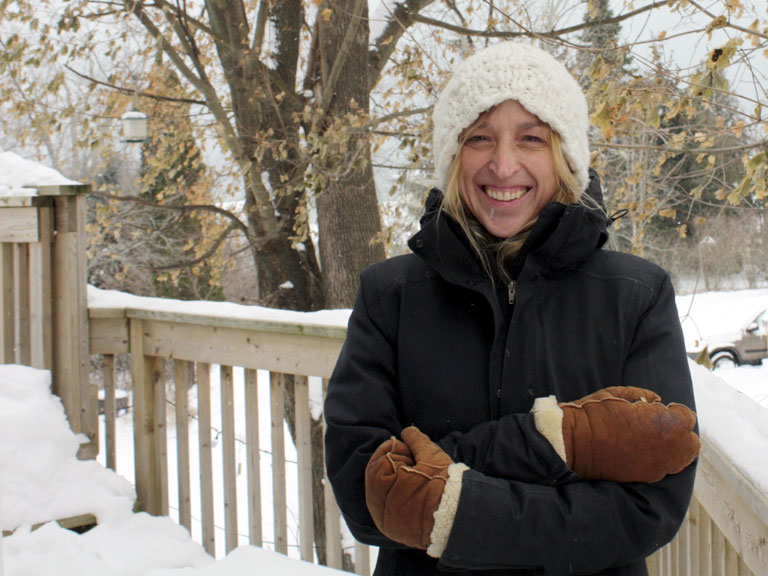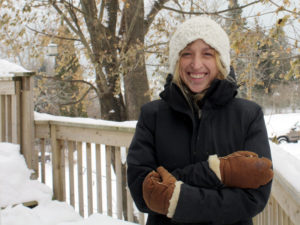County News
Gender roles

Wellington resident travels globally in the name of gender equality
The issues of gender in our society have never been more prevalent than in recent years, where conflicting opinions both socially and economically are being brought to the forefront for debate. Words like neutral, re-assignment and identity are now associated with gender in ways that weren’t considered 20 years ago. For Wellington resident Jennifer Donville, gender education is more than just a debate, it’s her profession. Donville is a Gender Equality Advisor with Plan International Canada (PIC), a job that takes her to remote communities all over the world, implementing programs for gender education and the rights of women and girls. It’s something she’s always been passionate about and a field she has the education for. Completing her undergraduate in Politics at the University of Toronto, Donville received a Commonwealth scholarship to do her masters in International Development from the London School of Economics.
Her work with PIC takes her to places like Uganda, Laos and the Phillipines on a regular basis to check in with their counterparts in Plan International and make sure the programs are operating properly. One of Donville’s jobs as an advisor, is to put a “gender equality lens” to every aspect of the program to ensure that boys and girls in these programs are being treated equally.
“I have to make sure that the little details are looked after that may not be thought of. For example, if you’re having a meeting, is it at a time and in an area of town where a girl in that community can feel comfortable attending? If there are issues with safety, does an escort need to be arranged? We also train the educators and ask them to be self-reflective with questions like: Are you treating boys and girls equally in your classroom?”

Jen Donville at her home in Wellington.
Some of the programs have a long road ahead of them to make change happen. One example was a situation a few years back when Donville had put a question to a group of people she was working with: If a woman is victimized and is dressed inappropriately, then it’s her fault. Agree or Disagree.
“The whole room went to the agree side. I knew right then I had a lot of work to do to. On the flip side, it is amazing to see that “Aha!” moment when do you change someone’s mind. It’s incredibly rewarding.”
Travelling to remote areas of the world at least four to five times a year, Donville worked for War Child Canada before her career with PIC. Her first work trip overseas was to Sri Lanka during the civil war and just after a tsunami devastated the area. Her task was to go into the coastal town of Batticaloa and support a centre for children who had experienced trauma obtain treatment using a program that is designed to heal through play.
“The children in these communities have faced serious trauma in their short lives. They need to get re-aquainted with being a kid. Our partners in Sri Lanka helped by providing a safe space where boys and girls could get psychosocial support and start playing again,” says Donville.
It was also on that first trip that Donville recounts being exposed to the dark, predatory nature of people and businesses when they see vulnerability. Representatives from an unnamed child’s baby formula company was visiting under-privileged communities and offering free samples of baby formula, promoting it as a healthier alternative to breast milk. The amount of formula offered for free was just enough that the mother would stop lactating, and would have to rely on the formula from then on.
“Those people took away the one free thing that a mother can giver her child. Her breastmilk. It’s those situations that make me want to work towards the empowerment and education of women and girls.”
Donville’s work at PIC has focused mainly on gender equality and the rights of women and girls in education and health sector programs. One example is alternative learning programs designed to help youth, often young mothers and child brides, to complete basic education. Early marriage and early pregnancy usually spell the end of an education for young mothers in many countries, as they cannot attend regular formal classes. This program provides them the opportunity to educate themselves, helping to break the cycle of poverty. One important element of implementing programs like these is getting community-level support. Donville supports local teams to engage the decision makers of the household and the community to change perceptions about the value of girls’ education.
“In many agrarian communities, the girl marries and goes to live with the husband’s family. So, why invest in the girl’s education when the parents would just end up losing that investment to the husband’s family? Men get educated, marry women and it all stays in the family. It’s a hard cycle to break. It’s generations of economic logic. But it is the basic right of every girl to be educated. No one can deny that.”
These are all small victories that add up a greater cause. People anywhere in the world, whether in Canada or Kenya, don’t change their perspective on gender right away. It takes time, patience and persistence, and engagement with men, women, children and community leaders. In cases where countries do not have a Gender Equality Advisor, Donville must facilitate both ends of the project.
When asked what Canadians can do, Donville says staying informed about the situation of girls and women around the world is so important. Donations, of course, are great ways to contribute to the good work of many organizations. However, when you decide to donate, make sure you know who you’re dealing with.
“You should look at donating the same way you look at investing in a company. Do your research. Is the organization producing results? How accessible are they? How transparent with their funds? You’ll know how credible an organization is with a little searching.”
As for the future, Donville hopes to bring her two boys on one of her trips to Africa or Asia when they get a little bit older. Her next trip takes her back to Kenya and Ethiopia, where she’ll support the local country teams to rack up small victories in the name of gender equality.

Comments (0)